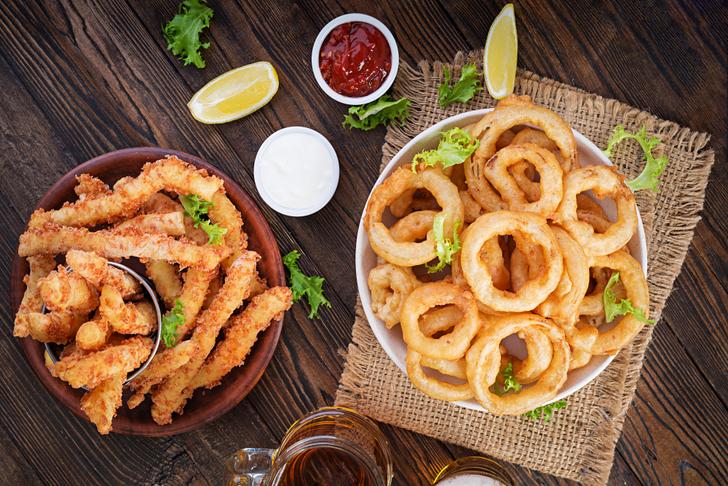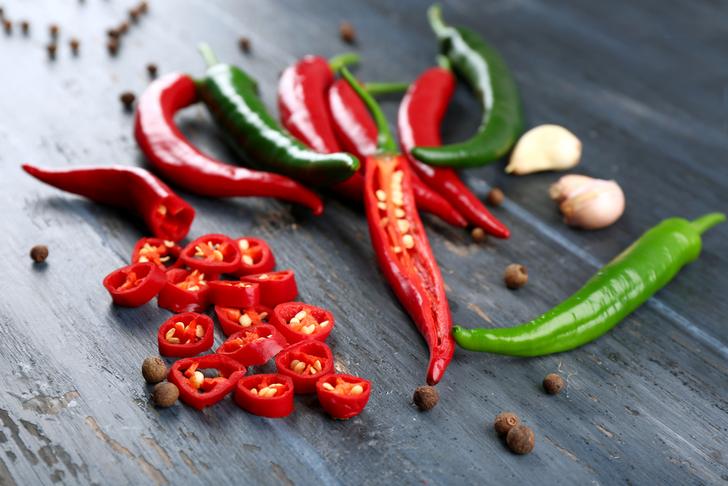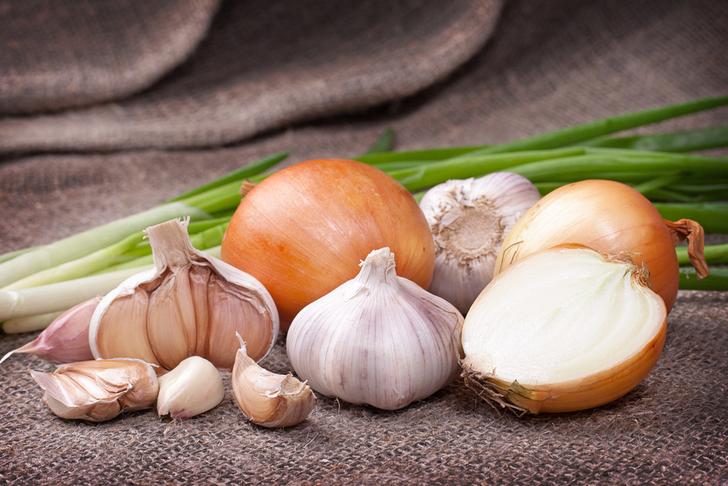10 Acid Reflux Trigger Foods to Avoid
Acid reflux, also known as gastroesophageal reflux disease (GERD), is a common digestive disorder that affects millions of people worldwide. It occurs when stomach acid flows back into the esophagus, causing irritation and discomfort. While certain medications and lifestyle changes can help manage acid reflux, avoiding specific trigger foods is an essential step in preventing symptoms. In this article, we will discuss 10 common acid reflux trigger foods and how to avoid them for better digestion and overall health [1].
Fatty and Fried Foods
Fatty and fried foods are known to slow down digestion, causing the stomach to produce more acid. This increased acid production can lead to acid reflux symptoms. Avoiding high-fat foods like fried chicken, French fries, and fatty cuts of meat can help reduce the risk of acid reflux [2].

Advertisement
Spicy Foods
Spicy foods can irritate the esophagus and trigger acid reflux symptoms. If you are prone to acid reflux, it is best to avoid spicy dishes or consume them in moderation [2].

Advertisement
Citrus Fruits and Juices
Citrus fruits and their juices, such as oranges, lemons, and grapefruits, are highly acidic and can trigger acid reflux symptoms. Opt for non-citrus fruits like apples, bananas, and melons to reduce the risk of acid reflux [3].

Advertisement
Tomatoes and Tomato-Based Products
Tomatoes and tomato-based products, like pasta sauce and ketchup, are also highly acidic and can trigger acid reflux symptoms. Consider using alternative sauces or ingredients to avoid this trigger [3].

Advertisement
Chocolate
Chocolate contains an ingredient called methylxanthine, which can relax the lower esophageal sphincter and allow stomach acid to flow back into the esophagus. If you suffer from acid reflux, it is best to limit your chocolate consumption [2].

Advertisement
Peppermint
While peppermint is often used to soothe an upset stomach, it can also relax the lower esophageal sphincter and worsen acid reflux symptoms. Avoid consuming large amounts of peppermint, especially in the form of candies or tea [2].

Advertisement
Onions and Garlic
Onions and garlic can cause acid reflux symptoms in some individuals. If you find that these foods trigger your acid reflux, try using alternative seasonings or cooking methods to reduce their impact [3].

Advertisement
Caffeinated Beverages
Caffeinated beverages, such as coffee and tea, can relax the lower esophageal sphincter and trigger acid reflux symptoms. Opt for decaffeinated versions or herbal teas to reduce the risk of acid reflux [2].

Advertisement
Carbonated Drinks
Carbonated drinks can cause bloating and increase pressure on the lower esophageal sphincter, leading to acid reflux symptoms. Limit your consumption of carbonated beverages and opt for water or herbal tea instead [3].

Advertisement
Alcohol
Alcohol can relax the lower esophageal sphincter and increase stomach acid production, both of which can contribute to acid reflux symptoms. Limit your alcohol consumption and avoid drinking on an empty stomach to reduce the risk of acid reflux [2].
In conclusion, avoiding these 10 common acid reflux trigger foods can help prevent symptoms and improve overall digestive health. By making mindful choices and incorporating healthier alternatives, you can reduce the risk of acid reflux and enjoy a more comfortable and enjoyable eating experience.

Advertisement
What Causes Acid Reflux?
You may be wondering what causes acid reflux. Below are some things that can cause or contribute to acid reflux:
Lower Esophageal Sphincter (LES) Abnormalities: The LES is a bundle of muscles at the low end of the esophagus, where it meets the stomach. Normally, the LES closes as soon as food passes through it. If it doesn’t close all the way or if it opens too often, acid produced by your stomach can move up into your esophagus, causing acid reflux.
Hiatal Hernia: This condition occurs when the upper part of your stomach bulges through the large muscle separating your abdomen and chest (diaphragm). A hiatal hernia can impair the functioning of the LES, promoting acid reflux.
Pregnancy: During pregnancy, the hormone progesterone can relax the LES, leading to acid reflux. Also, the growing fetus can put pressure on the stomach, pushing stomach acids into the esophagus.
Obesity: Being overweight or obese can put pressure on the abdomen, pushing stomach contents into the esophagus.
Certain Foods and Drinks: Some foods and drinks can trigger acid reflux, including spicy foods, onions, citrus products, tomato products, chocolate, mint, garlic, alcohol, caffeine, and fizzy drinks.
Smoking: Chemicals in cigarette smoke can interfere with the functioning of the LES, leading to acid reflux.
Certain Medications: Some drugs can cause or worsen acid reflux, such as certain sedatives, antidepressants, and drugs for high blood pressure.
Delayed Stomach Emptying: Conditions that slow the emptying of the stomach can also lead to acid reflux, as food and acid accumulate in the stomach.
Stress and Lack of Sleep: Both of these factors can worsen symptoms of acid reflux.
It’s important to note that different people have different triggers for acid reflux. What causes acid reflux in one person might not cause it in another. If you’re experiencing symptoms of acid reflux, it’s recommended to speak to a healthcare professional to understand the cause and get appropriate treatment.
Advertisement
What are the Symptoms of Acid Reflux?
Acid reflux is never fun. The backwash of acid from your stomach into your esophagus can be irritating and cause discomfort. Below are several common symptoms of acid reflux:
Heartburn: This is the most common symptom. It’s a burning pain or discomfort that can move from your stomach to your abdomen or chest, or even up into your throat.
Regurgitation: This is a sour or bitter-tasting acid backing up into your throat or mouth.
Bloating: Acid reflux can cause swelling in the stomach that leads to bloating.
Bloody or black stools or bloody vomiting: This can occur if the acid in your stomach damages the lining of your esophagus to the point of causing bleeding.
Burping: Acid reflux can cause increased burping.
Dysphagia: This symptom is characterized by a narrowing of your esophagus that creates the sensation of food being stuck in your throat.
Hiccups that don’t let up: Persistent hiccups can be a symptom of acid reflux.
Nausea: Acid reflux can cause nausea or even vomiting.
Unexplained weight loss: In severe cases, acid reflux can interfere with your appetite or cause malabsorption, leading to unexplained weight loss.
Chronic sore throat, hoarseness, or laryngitis: Some people with acid reflux also experience these symptoms, often because of acid reaching the throat and voice box.
Wheezing, dry cough, or chronic cough: These are less common symptoms and occur when acid reaches the airways.
Disrupted sleep: Acid reflux symptoms often worsen when you’re lying down, causing difficulty sleeping or interruptions to sleep.
Remember, these symptoms can be caused by conditions other than acid reflux. If you’re experiencing one or more of these symptoms, it’s important to consult with a healthcare professional for an accurate diagnosis.
Advertisement
Similar Conditions
There are a number of other condtions with symptoms similar to acid reflux. Such as:
Gastritis: Inflammation of the stomach lining can cause symptoms similar to GERD, including heartburn and indigestion.
Peptic Ulcer Disease: Peptic ulcers, which are sores on the lining of the stomach, upper small intestine or esophagus, can cause pain similar to heartburn.
Gallbladder Disease: Gallstones or inflammation of the gallbladder can cause abdominal pain that may be confused with heartburn.
Esophageal Spasms: Involuntary contractions of the esophagus can mimic the pain of heartburn.
Hiatus Hernia: This condition can present symptoms similar to GERD as the upper part of the stomach pushes through the diaphragm, possibly causing heartburn and acid reflux.
Heart Disease: Sometimes, chest pain related to heart conditions can mimic heartburn. It’s important to seek immediate medical attention if you have chest pain, especially if it is accompanied by other symptoms like shortness of breath, arm pain, dizziness, and sweating.
Pancreatitis: Inflammation of the pancreas can cause abdominal pain that might be confused with GERD.
Functional Dyspepsia: Also known as non-ulcer stomach pain or non-ulcer dyspepsia, this condition can cause a burning feeling in the stomach similar to that of acid reflux.
Esophageal Cancer: In rare cases, esophageal cancer can present symptoms similar to GERD.
Eosinophilic Esophagitis: This is a chronic immune system disease that can mimic the symptoms of GERD.
Because the symptoms of GERD can mimic so many other conditions, it is important to see a healthcare provider if you have persistent symptoms to get an accurate diagnosis.

Advertisement





